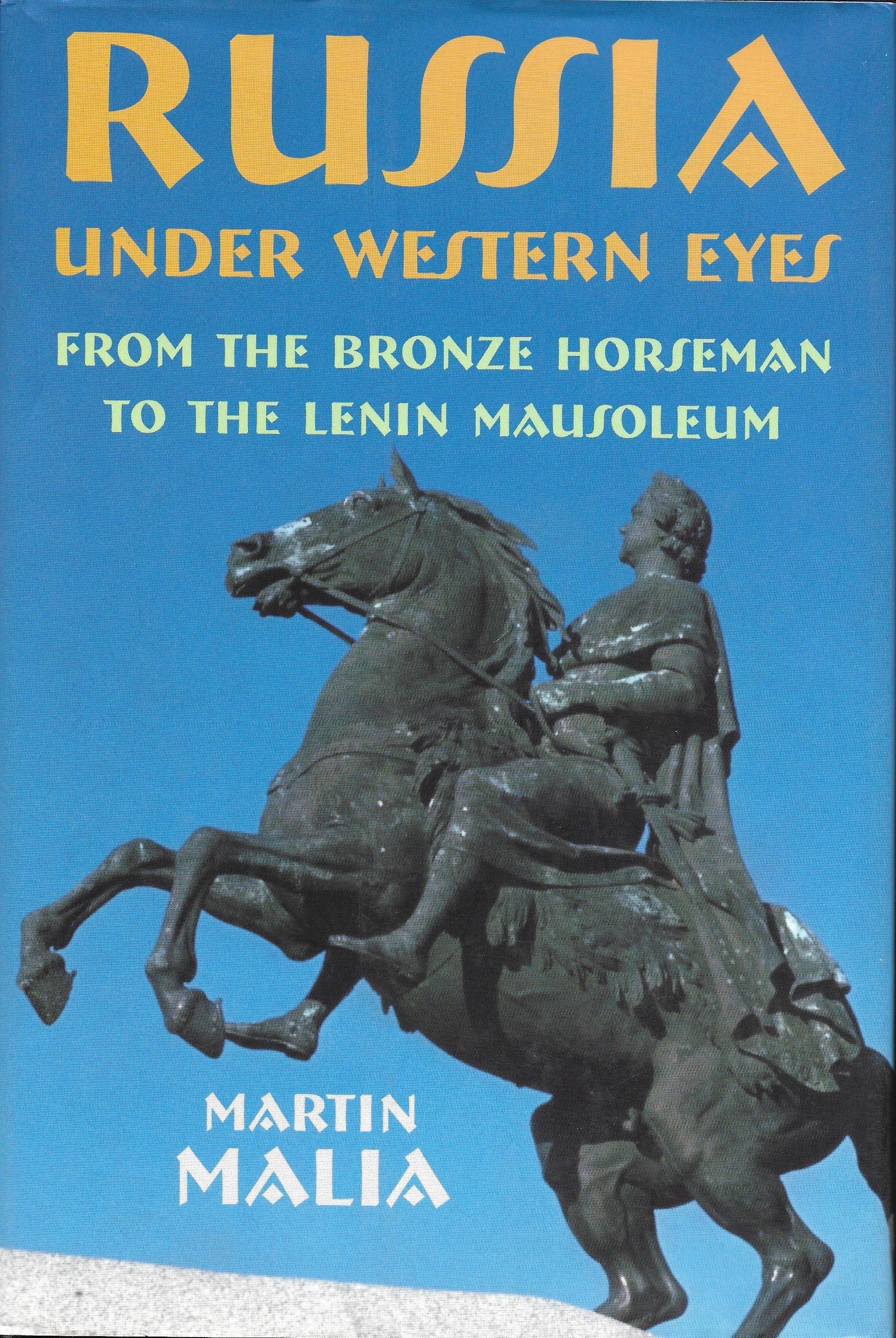 Image 1 of 1
Image 1 of 1


Russia Under Western Eyes: From the Bronze Horseman to the Lenin Mausoleum
Martin Malia, 1999, Belknap Press, 514 pages with index, hardcover.
Like new.
As the dust clears from the fall of Communism, what will Western eyes see? Russia, the unclaimed orphan of Western history? Or Russia as she truly is, a perplexing but undeniable member of the European family? Spanning the years from Peter the Great to the fall of the Soviet Union, this text provides a sweeping view of Russia not as an eternal barbarian menace but as an outermost, if laggard, member in the continuum of European nations. Martin Malia shows the reader the usually distorted images and stereotypes that have dominated Western ideas about Russia since the 18th century. Once these emerge as projections of the West's own internal anxieties, he shifts his focus to the institutional structures and cultural forms Russia shares with her neighbours. Modern Europe is depicted as a West-East cultural gradient in which the central and eastern portions respond to the Atlantic West's challenge in delayed and generally skewed fashion. Thus Russia, after two centuries of building then painfully liberalizing its Old Regime, in 1917 tried to leap to a socialism that would be more advanced and democratic than European capitalism. The result was a cruel caricature of European civilization, which mesmerized and polarized the West for most of the century.
Martin Malia, 1999, Belknap Press, 514 pages with index, hardcover.
Like new.
As the dust clears from the fall of Communism, what will Western eyes see? Russia, the unclaimed orphan of Western history? Or Russia as she truly is, a perplexing but undeniable member of the European family? Spanning the years from Peter the Great to the fall of the Soviet Union, this text provides a sweeping view of Russia not as an eternal barbarian menace but as an outermost, if laggard, member in the continuum of European nations. Martin Malia shows the reader the usually distorted images and stereotypes that have dominated Western ideas about Russia since the 18th century. Once these emerge as projections of the West's own internal anxieties, he shifts his focus to the institutional structures and cultural forms Russia shares with her neighbours. Modern Europe is depicted as a West-East cultural gradient in which the central and eastern portions respond to the Atlantic West's challenge in delayed and generally skewed fashion. Thus Russia, after two centuries of building then painfully liberalizing its Old Regime, in 1917 tried to leap to a socialism that would be more advanced and democratic than European capitalism. The result was a cruel caricature of European civilization, which mesmerized and polarized the West for most of the century.